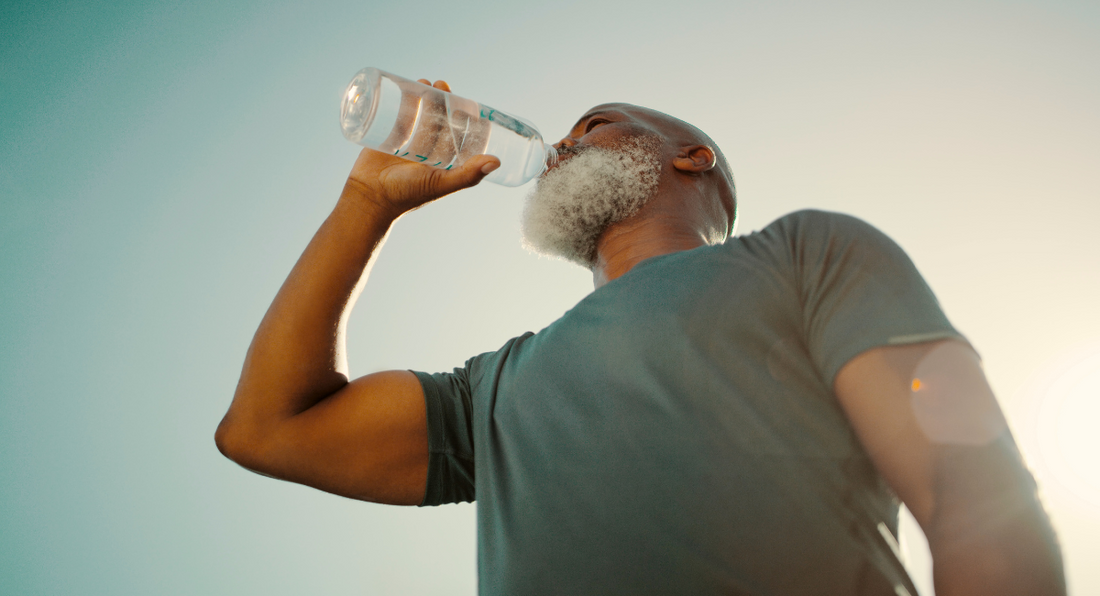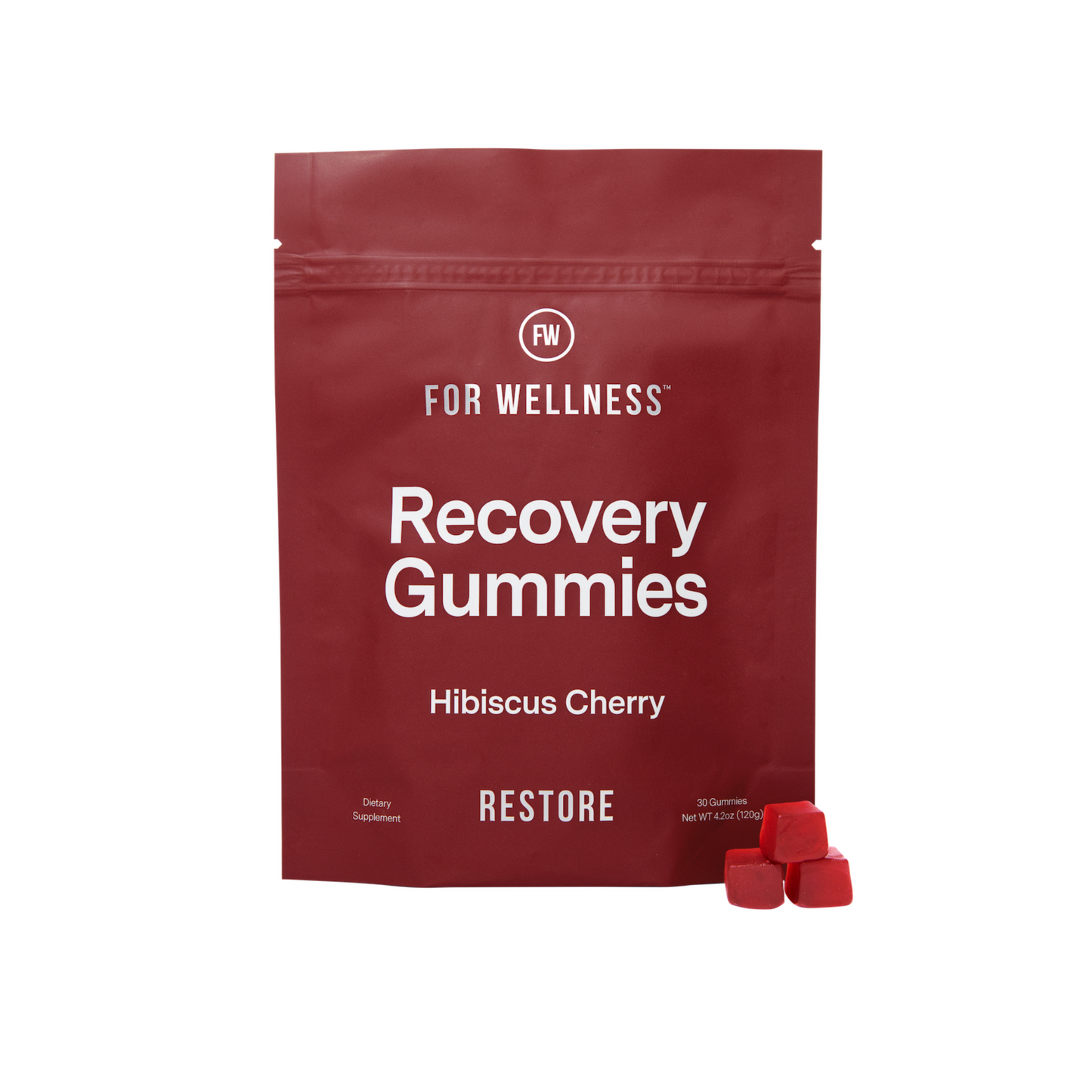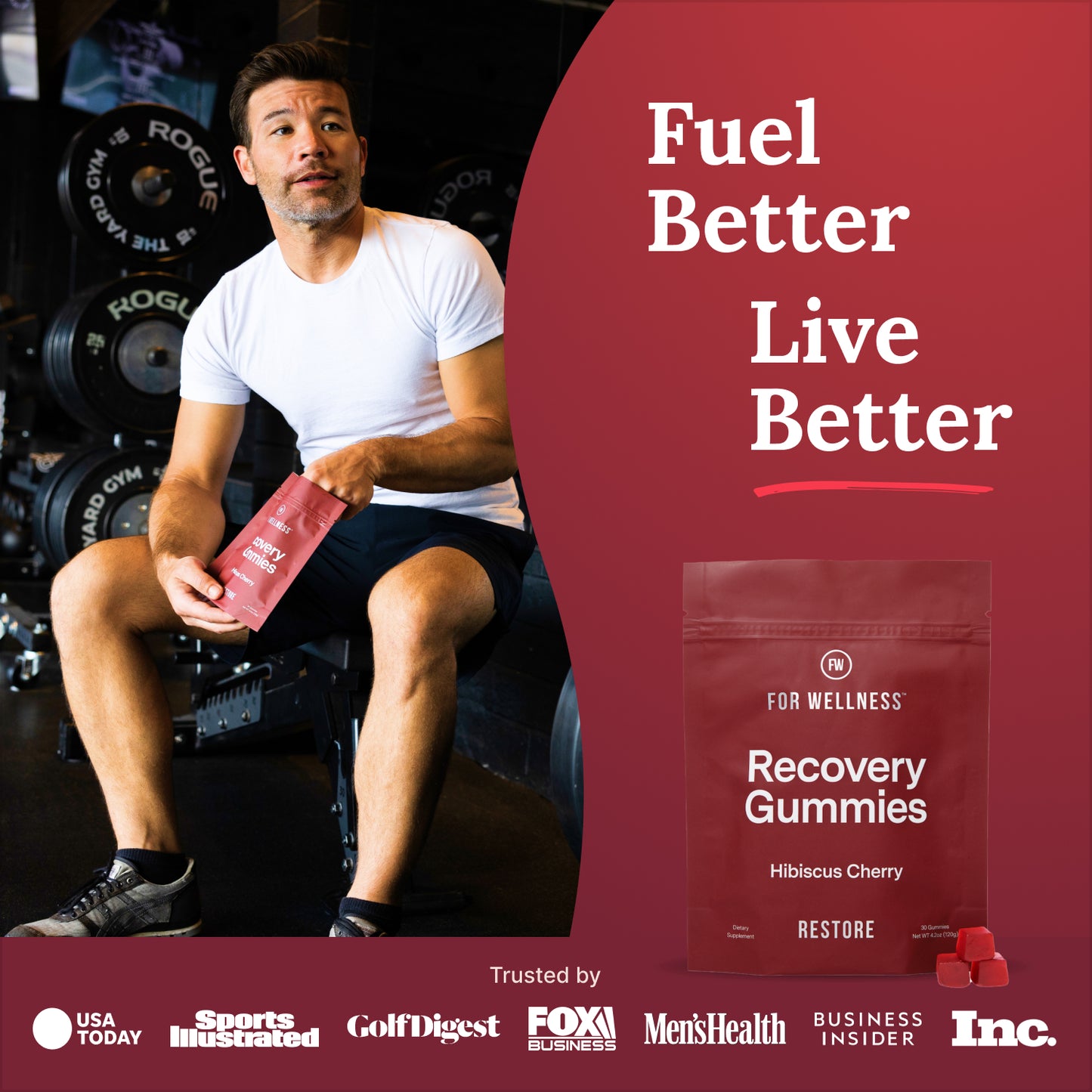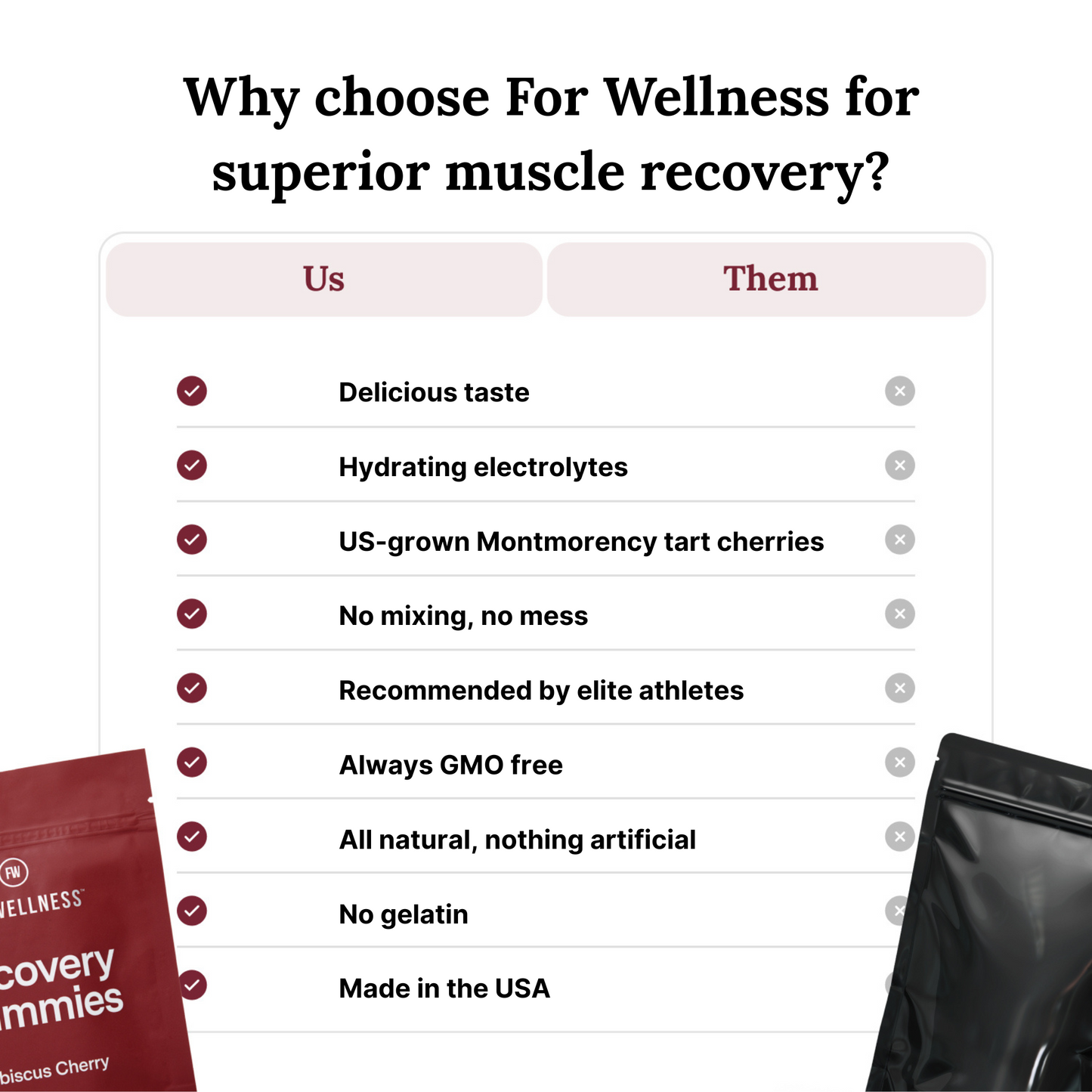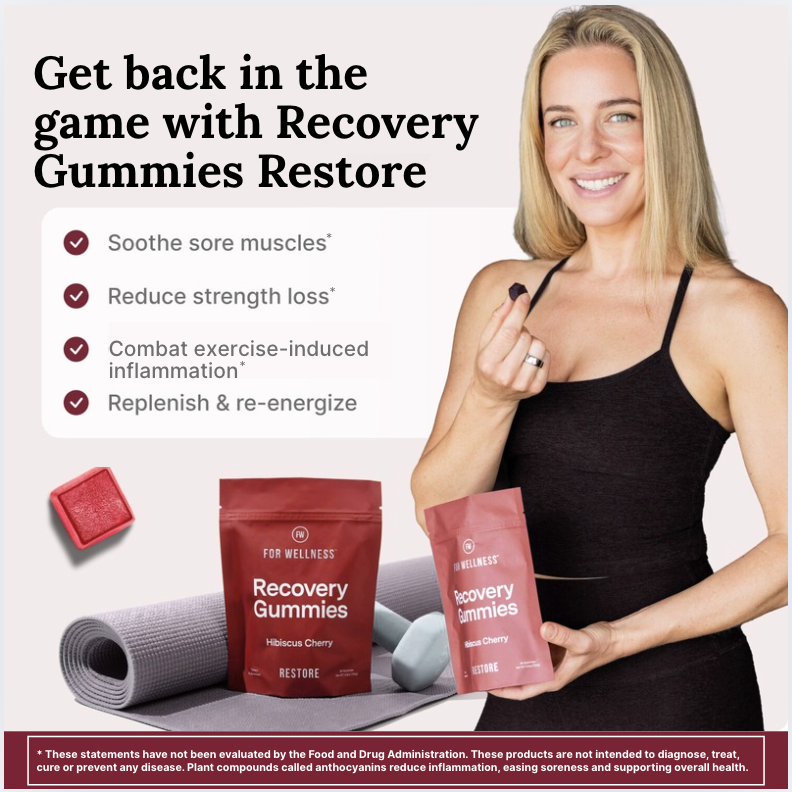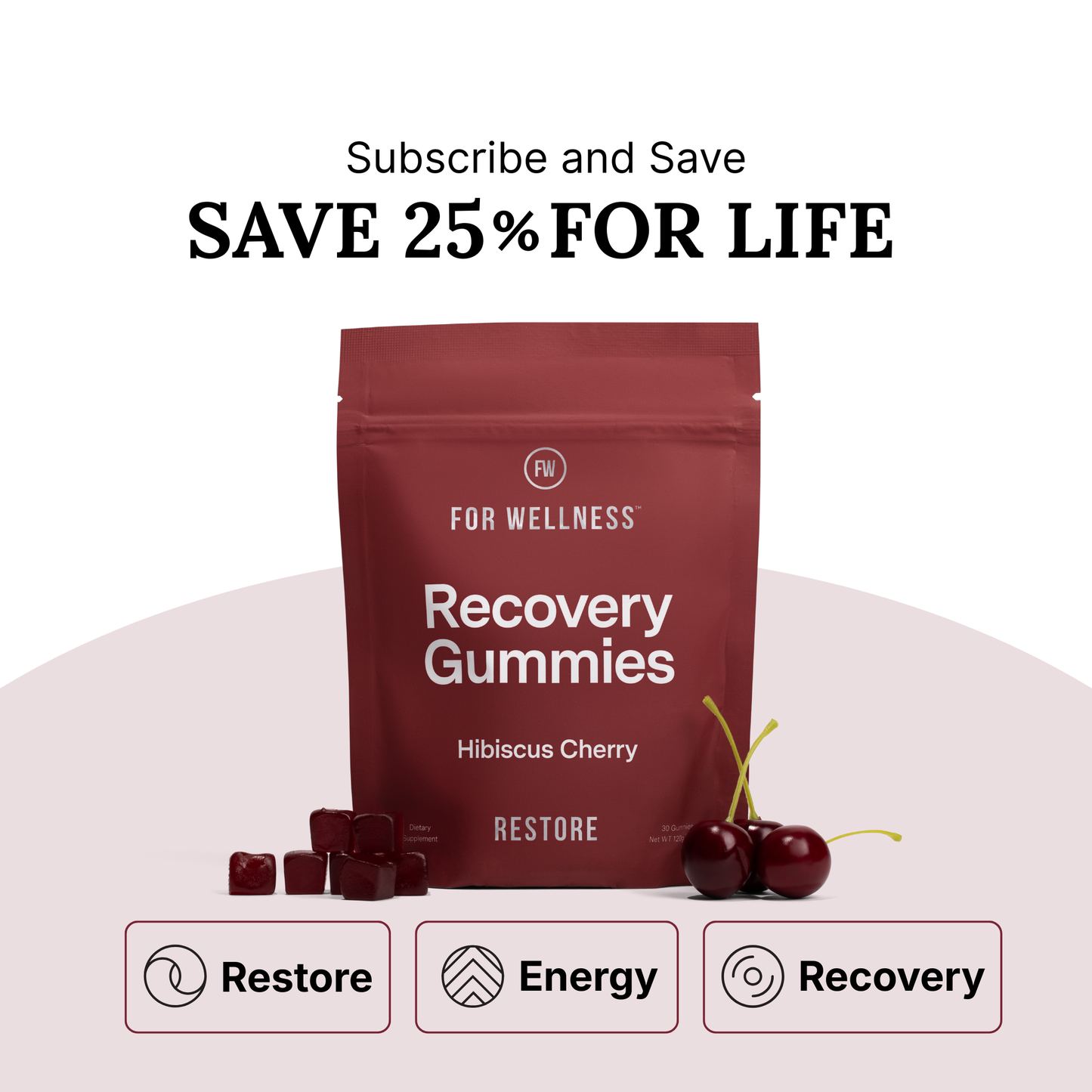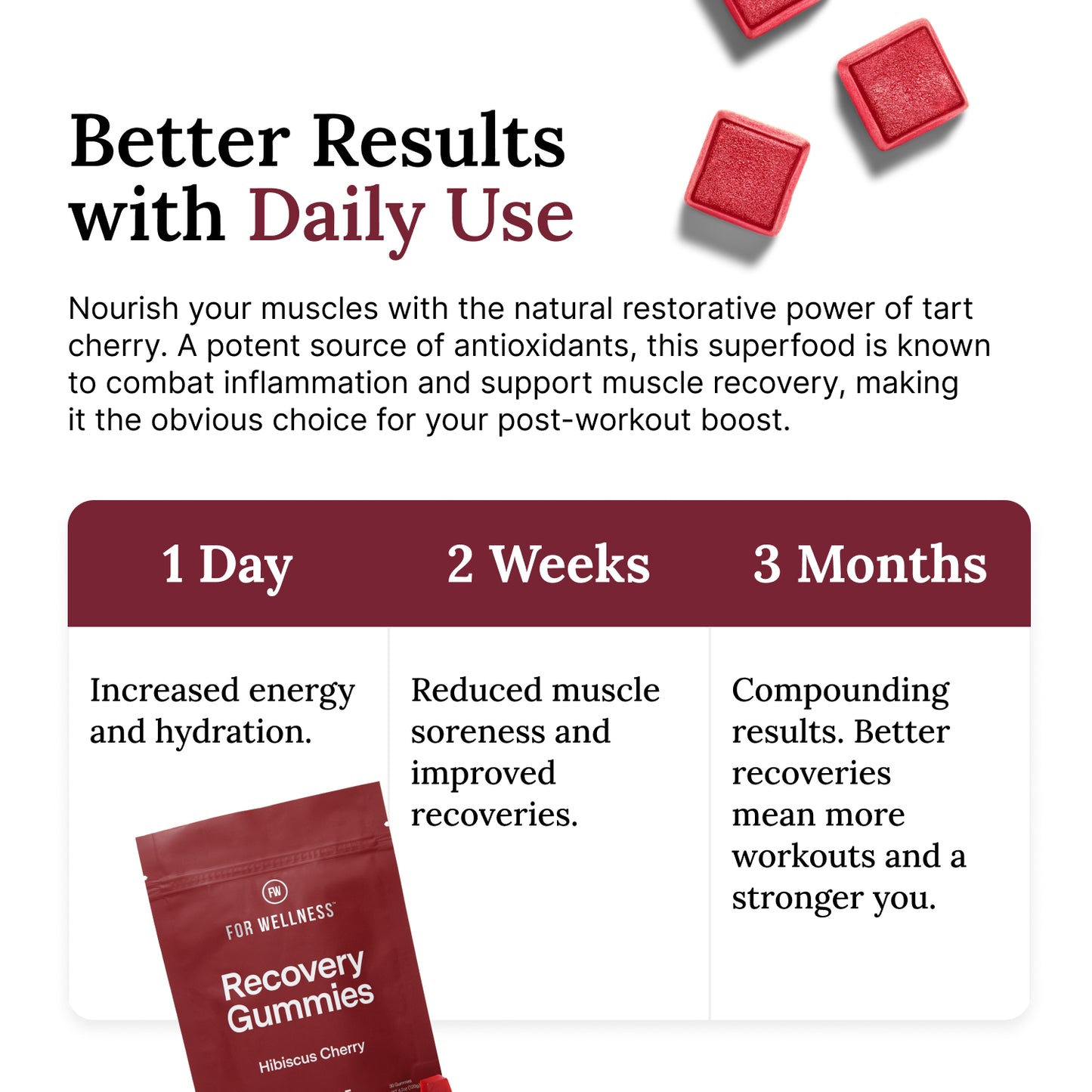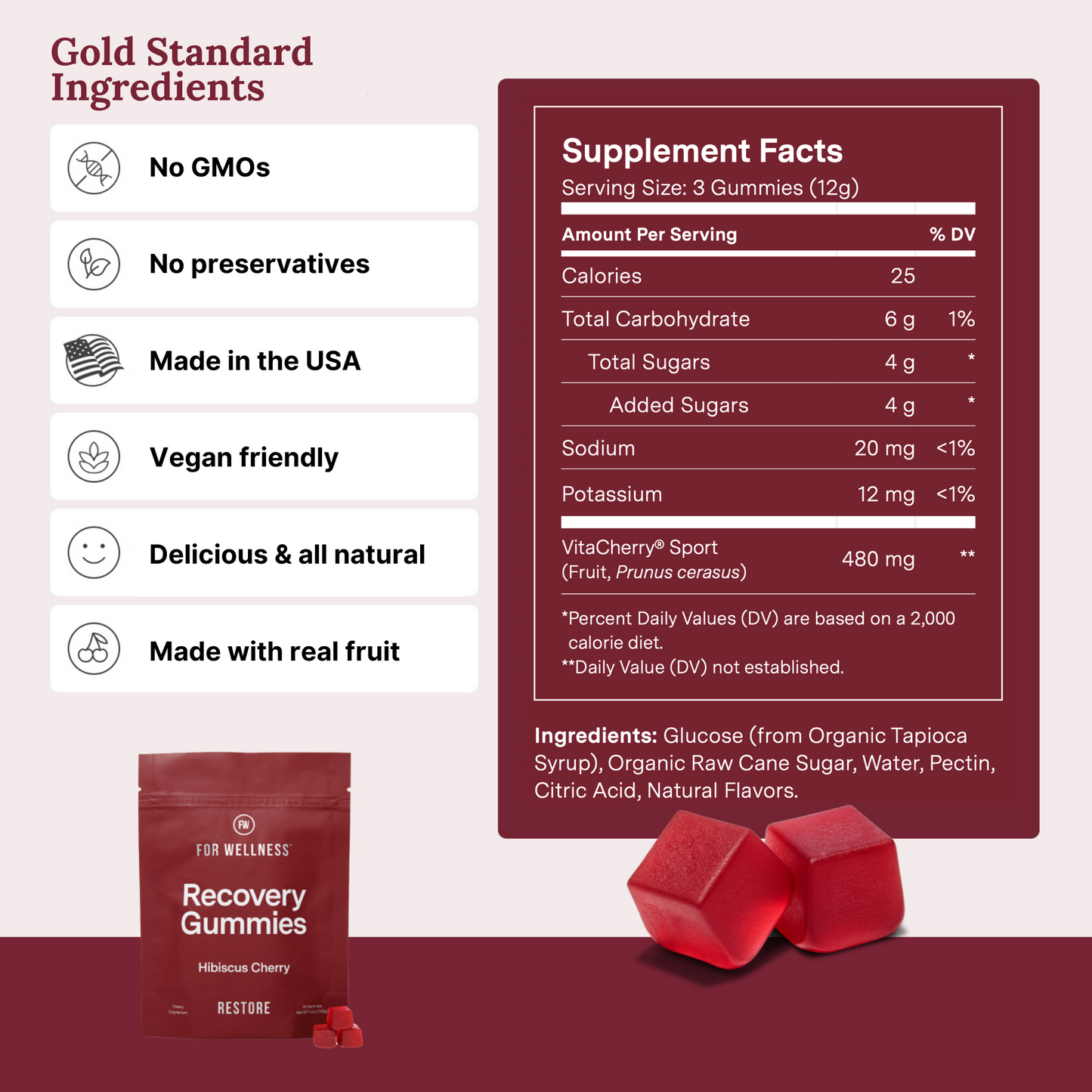When you think of hydration, water is probably the first thing that comes to mind. But H2O is just one piece of the hydration puzzle. To truly optimize your hydration, you also need electrolytes (like sodium, potassium, and magnesium) and glucose (aka sugar).
This sweet molecule, found in many foods (and in our Recovery Gummies™ Hydration), not only provides a quick energy boost but also plays a critical role in enhancing your body's ability to absorb water and essential minerals. This isn't to say you should eat cookies and ice cream with abandon, though, but a little sugar can go a long way in supporting your hydration.
We'll get into the nitty-gritty of how that process works shortly, but first, let's lay down some basics.
Why Is There So Much Emphasis On Hydration?
Hydration is the process of providing your body with the fluids it needs to maintain its vital functions. It involves ensuring that your body's cells, tissues, and organs receive the water they require to operate efficiently. Since water makes up about 60% of the human body, it's no surprise that staying hydrated is crucial for overall health.
Hydration affects nearly every aspect of your body's functioning, including:
- Regulating body temperature
- Aiding in digestion
- Transporting nutrients
- Removing waste products
- Supporting joint lubrication
- Supporting skin health
- Supporting cognitive function
You lose water daily through sweat, urine, and stool, which must be replaced by drinking water and water-containing foods and beverages.


Recovery Gummies - Hydrate
-
Full of antioxidants and replenishes electrolytes.
-
Boosts energy with all-natural ingredients.
-
Tastes incredible with juicy blueberry flavors.
Hydration Is About More Than Just Water: Meet Electrolytes
While water is undoubtedly the cornerstone of staying hydrated, it's only part of the equation. Proper hydration is a complex process that involves a delicate balance of water and electrolytes.
Electrolytes are essential minerals, including sodium, potassium, calcium, magnesium, chloride, and phosphate. They dissolve in body fluids and carry an electric charge, which is vital for many physiological processes, such as muscle contractions, nerve function, blood pressure, and pH level.
In terms of hydration, electrolytes help control the movement of water into and out of your cells, ensuring that the fluid balance inside and outside the cells is maintained. For instance, sodium, in combination with potassium, is a primary regulator of fluid balance. It attracts water and helps retain it in the extracellular spaces, preventing dehydration.
Why Glucose Is Important for Hydration
So, where does glucose fit into this picture? Glucose is a simple sugar (aka simple carbohydrate) that's naturally present in many foods.
While it's primarily known for being a vital energy source for the body, glucose also plays a key role in hydration due to its ability to facilitate sodium and water absorption in the intestines. When glucose is present in the small intestine, it joins forces with sodium to increase one another's absorption in the gut. This is mediated by proteins in the gut called SGLT1 and SGLT2.
Simply put, sugar helps you absorb sodium and water more effectively. This mechanism is the foundation of oral rehydration therapy (ORT), which is designed to treat dehydration more effectively than water alone. ORT has rehydrated countless people with extreme dehydration. In fact, it's estimated that ORT has saved around 70 million lives since its introduction in the late 1970s.
Tips for Optimal Hydration
Now you know the basics of hydration and how glucose can support that process, but how can you apply this knowledge to your life? Here are our top tips.
Drink Water to Thirst
Many people believe that drinking more water automatically means better health, but this is a common misconception. Overconsumption of water can dilute your body's sodium and other minerals, leading to an electrolyte imbalance.
For example, athletes often drink large amounts of plain water without replenishing their electrolytes. This can dangerously dilute their electrolytes, causing cells to swell, including brain cells. This life-threatening condition, known as hyponatremia, can result in permanent brain damage or even death if left untreated.
Fortunately, your body has a built-in mechanism to signal when you need water — thirst. The best rule of thumb is to drink water when you feel thirsty. This ensures that your body gets the right amount of water it needs without the risk of overhydration. No need to chug excessively.
Eat Electrolyte-Rich Foods
Electrolytes are found in all kinds of healthy foods. Some of the best sources include:
- Watermelon
- Spinach
- Avocados
- Bananas
- Sweet potatoes
- Coconut water
- Dairy products
- Nuts and seeds
- Kale
- Avocados
- Broccoli
- Beans and lentils
- Sweet potatoes and white potatoes
- Soybeans and tofu
- Strawberries
- Oranges
- Bananas
- Tomatoes
- Milk
- Yogurt
- Bone broth
- Coconut water
- Olives
- Beets
- Prunes
Regularly including these foods in your meals can help maintain your electrolyte balance, supporting optimal hydration and overall health.
Eat Water-Rich Foods
Incorporate fruits and vegetables with high water content into your diet. Foods like watermelon, cucumbers, oranges, strawberries, and spinach can contribute significantly to your overall fluid intake while also providing essential vitamins and minerals.
Consider a Hydration Supplement
Hydration supplements (aka electrolyte supplements) are an excellent option when you need a convenient, effective hydration boost on the go. They're specially formulated to provide the right balance of electrolytes, glucose, and other essential nutrients to support fluid absorption and retention.
Our Recovery Gummies™ (Hydration) are one such product. Here are some highlights:
- Natural electrolyte balance: Enhanced with potassium, sodium, and magnesium, these gummies help maintain essential electrolyte balance for optimal hydration.
- Glucose for hydration: Glucose helps facilitate sodium and water absorption in the intestines, supporting effective hydration.
- Clean ingredients: Made with real fruit, these gummies are vegan, non-GMO, and free from artificial colors, flavors, and preservatives.
- Convenient and delicious: Portable and tasty, these gummies make hydration easy and enjoyable.
- A small dose of glucose: When it comes to sugar, you don't want to overdo it. Too much sugar can spike your blood sugar. Two gummies (one serving) provide a modest 3 grams of sugar from cane sugar, which improves electrolyte and fluid absorption while boosting energy.
- Rich in antioxidants: Bonus? These gummies include VitaBlue®, a 100% pure blueberry extract that offers the full antioxidant power of high-quality American blueberries. VitaBlue® preserves the exact phenolic profile found in fresh blueberries without any carriers.
Sweeten Your Hydration Game with Glucose
Understanding how to optimize hydration can significantly impact your overall health and well-being. Here's a quick recap of the key points discussed:
💧Drinking water is crucial, but it's only part of the hydration equation.
⚖️Electrolytes (sodium, potassium, magnesium) are vital for fluid balance.
🍯Glucose plays an important role in hydration by enhancing water and electrolyte absorption.
🧠Follow your body's natural signals and drink to thirst to avoid overhydration
🍉Eat water- and electrolyte-rich foods.
💙Consider a hydration supplement like Recovery Gummies™ (Hydration) for a convenient, on-the-go hydration boost.
Water, glucose, and electrolytes form the ultimate hydration trifecta. Stay hydrated, stay healthy, and let glucose add a sweet boost to your hydration routine!
Written by Katie Koschalk, a health and wellness writer, certified holistic nutritionist, and certified personal trainer based in California.

